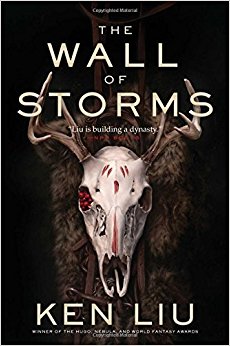Movie Review: "Blade Runner 2049" (‘As clear as dreaming’)

I can’t remember ever being as disturbed and enthralled at one time by any movie as by “Blade Runner 2049.” That makes it fine art in my eyes. The movie is disturbing because it so explicitly poses questions about personhood, objectification and empathy. I gasped a few times and flinched several more times, and so did my companion. Besides the consent issues, the violence in it is also disturbing, and this vision of 2049 is even more dystopic for PoC and women; however, I saw those elements not as gratuitous, but rather as deliberate showcasing of the problems of society. I’ll discuss that more after the spoiler warning. The movie is enthralling because it is so well done. I said before that it “poses” questions instead of “asks” them, because aside from some brief future-history infodumping, there is a whole lot of show-not-tell in this movie, the opposite of the much-derided voiceover in the 1982 movie’s theatrical version. I suppose a person who’s oblivious to social issues could take everything that happens at face value, as though the viewer is supposed to be okay with the situations and choices being shown, but it seems obvious that a person who thinks about them is supposed to be cringing.
Book Review: The Wall of Storms by Ken Liu

The second volume in Ken Liu’s Dandelion Dynasty series just had its paperback release, so this felt like a good moment to review this sequel to 2015’s The Grace of Kings. If you aren’t familiar with that start to the series, you can find my review of it here, and I would not recommend starting with the sequel or reading further in this review. The plot of The Wall of Storms actually does stand rather well on its own. However, the framework of Liu’s Chinese-history inspired archipelago kingdom/culture is built in the first book and could be harder to appreciate or grasp without starting there. As hefty and epic a tome as its predecessor, The Wall of Storms seems to fit in the overall series plot arc as a transition. As meaningful and impactful as Liu’s debut novel, the sequel continues similar themes of individual and societal struggles to advance and improve, but within a political context shifted from revolt to one of maintaining benevolent power amid threats internal and external. A split between those internal to external threats comprises a hinge both conceptual and physical: forming the transition from events in The Grace of Kings to those to come in the third volume, and dividing The Wall of Storms into roughly equal halves. The novel deals with the ramifications of Kuni Garu’s populist rise to power as Emperor Ragin of Dara, with the consequences of the actions and compromises that he, and other characters, made while seeking the greater good or in yielding to their weaknesses.

